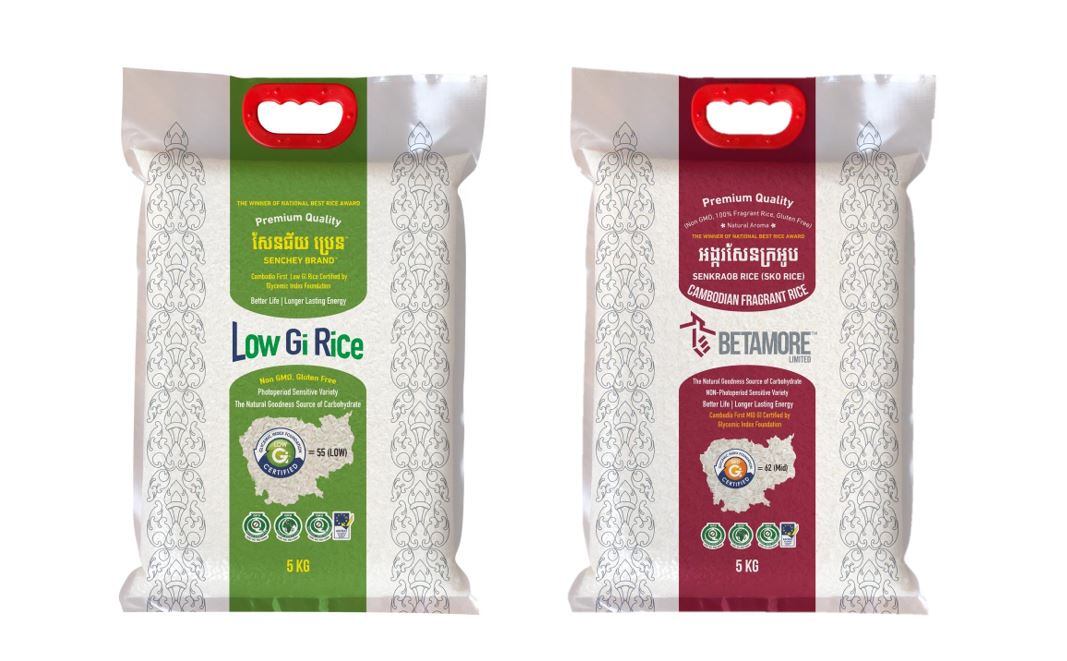APAC is home to 650 million people over 60, and this number is expected to reach 1.3 billion by 2050. With this comes increasing demand for products with immunity, bone, joint, muscle, cognitive, heart, skin, eye and digestive functions.
The panel discussion was part of our Growth Asia 2020 edition on Healthy Ageing. (Listen on demand here)
The five-person panel consisted of Thomas Teh, nutrition scientist at Tate & Lyle, Professor Peter Howe, head of clinical nutrition research centre at the University of Newcastle (Australia), Dr Joerg Schnackenberg, head of technical marketing at AstaReal Ltd Japan, Laima Liepinyte, business development manager for Arla Foods Ingredients Asia, and Dr Itay Shafat who is product manager for cognitive and sports nutrition at IFF Health.
It was hosted by Gary Scattergood, editor-in-chief of FoodNavigator-Asia and NutraIngredients-Asia.
Education is key
The panellists all agreed that one of the challenges when it comes to promoting healthy ageing in APAC was the lack of awareness among consumers.
Teh explained that the signs of ageing start as soon as early adulthood. Within ageing, cognitive health is one key area.
Shafat added: “Cognitive decline doesn’t start when we turn old, it starts in our 30s, and when people reach their 60s, they start to accumulate cellular damage and it’s hard to reverse, so what we need to do is postpone as much as we can. The key obstacle is how do you convince people to start early.
“That's a big challenge because a consumer not suffering from anything doesn't tend to take anything, they want to solve problems, not to prevent future problems. How do you convince brands and consumers to start early to reduce the burden on the economy and society?”
From a research perspective, Howe said it was important to educate politicians and decision makers to recognise that healthy ageing does not simply mean living longer, but living healthier and more productively, with a better quality of life.
He said just like medications are given to people when they are sick, targeted nutritional intervention with supplements can target people with risk factors that were identified early.
This approach would be a better method than current drug treatment therapy to try to manage or reverse conditions, which is costly for governments.
In addition, Howe observed that within the industry, brands were focused on their own product line targeting specific health issues. He claimed there must be an integrative approach and sound science, between different stakeholders.
“There must be a lot more educating the key stakeholders, the complementary medicine industry, researchers, investors as well as consumers.”
As an interactive broadcast series, the session also included a one-on-one interview with Dr Lesley Braun, executive director at the Blackmores Institute, who explained that having a good diet was important, but insufficient to meet daily nutrient requirements, hence supplementation is necessary.
New functions for existing ingredients
She focused on the healthy ageing benefits offered by omega-3, carotenoids, Co-enzyme Q10 and botanicals, adding that asresearch advances, existing ingredients are increasingly being studied for new functions.
One such example, added Liepinyte was whey protein, an ingredient traditionally known for building muscle mass in active individuals, which is now finding a spot in healthy ageing.
She said muscle health was an important part of healthy ageing, especially in preventing sarcopenia.
Clinical studies have shown that whey protein can increase muscle strength mobility and aid in weight management in the elderly population.
Liepinyte added that whey protein was also increasingly studied in other health areas such as gut and digestive health, as it has 98% digestibility and contain prebiotics. Other areas include immune health, weight management, and bone health.
As expected, the Covid-19 pandemic has created a demand for products with immune health functions, “but that (immune health) may be sort of a passing trend, and people will go back to their former consumption patterns, where ageing is and continues to be a trend,” Shafat said.
Another key ingredient is astaxanthin, a carotenoid pigment. Schnackenberg said astaxanthin was another upcoming ingredient for healthy ageing for its antioxidative functions.
“The structural characteristics of astaxanthin allows it to penetrate into cell membrane structures which not only protects the cells from oxidative damage, but also provides additional stability for the mitochondria which is essentially our energy production.”
While there are many other antioxidants already available such as vitamin C, Schnackenberg said astaxanthin is different from other antioxidants in that the latter can turn around and become a pro-oxidant.
Another common ingredient, dietary fibre known to help digestion and prevent constipation, is being studied as a healthy ageing ingredient.
Teh said fibre has been found to regulate blood glucose response which was helpful in diseases such as diabetes. Soluble fibre has also been studied for its ability to increase natural killer cells to fight infections.
He added that Tate & Lyle is currently studying the association between fibre consumption and calcium absorption.
A potent polyphenol, resveratrol has recently shown proven healthy ageing related benefits, with the clinical study RESHAW (RESveratrol for Healthy Ageing in Women), with Veri-te resveratrol winning the research project award at the NutraIngredients-Asia Awards 2020.
Howe, who is part of the research team, said RESHAW is the longest and largest clinical study assessing the benefits of daily resveratrol supplementation on cognition, bone, and well-being in post-menopausal women.
Braun also singled out carotenoids such as lutein as a potential healthy ageing ingredient. Lutein commonly used in eye health supplements, is recently studied for its effect on brain health.
Upcoming delivery formats for supplements
Translating such clinical findings into actual products was another obstacle.
The panellists agreed that APAC was a highly fragmented market, and trends in China may differ from trends in India, Japan, Australia and others.
In terms of delivery formats, Liepinyte said consumers needed different options. Schnackenberg added that developing markets like India and Bangladesh were still a tablet and capsule kind of market.
However, in other markets, consumers were facing pill fatigue: “People don't want to take so many pills anymore they are looking for something more convenient so what you consume on the go. They're looking for alternative formats,” Schnackenberg said.
“In Asia, we see nutritional solutions in the form of dairy powder, drinks, supplements that are added to regular foods where consumers can get their health ingredients from,” Shafat added.
Examples of alternative formats are protein bars, dairy, beverages, and gummies as a carrier for functional ingredients.
For instance, AstaReal is working with a partner in Singapore to develop a protein drink containing astaxanthin to target sarcopenia. Initial feedback was positive, and the firm is expecting to release the product soon.
Because of the varied delivery formats, Liepinyte cited that whey protein as a versatile nutritional ingredient as it can be applied in many formats including drinks, powders, tablets, ice cream, yoghurt and others.
With the advent of many innovative delivery formats, Teh said taste was still the most important factor for consumers. He explained it was important to balance taste, mouthfeel and health benefits.
The Growth Asia interactive broadcast series is one of six held over the course of October and November.
The next broadcast series on probiotics and prebiotics will air on October 20, followed by plant-based innovation (October 27), infant nutrition (November 3), active nutrition (November 10), and reformulation and fortification (November 17).


